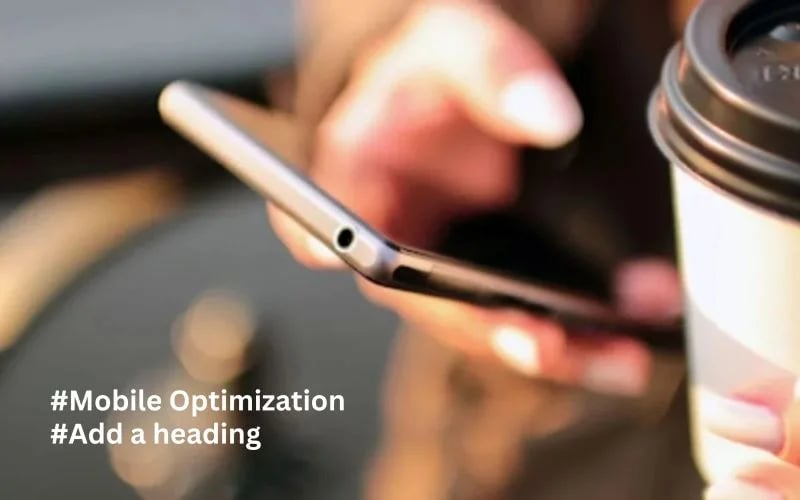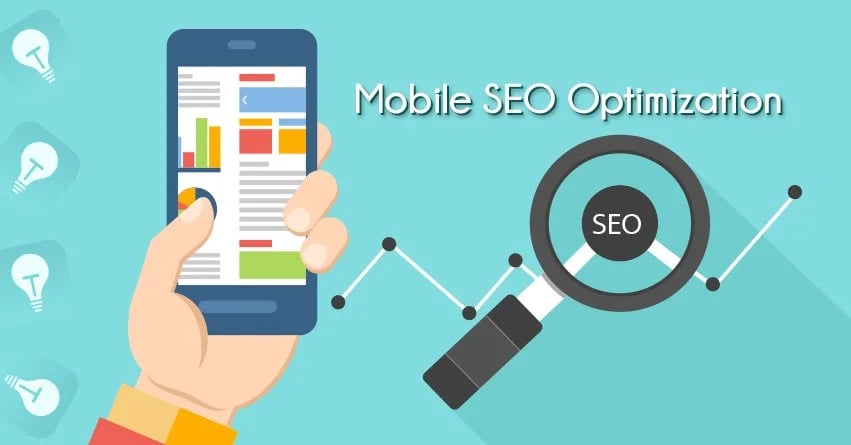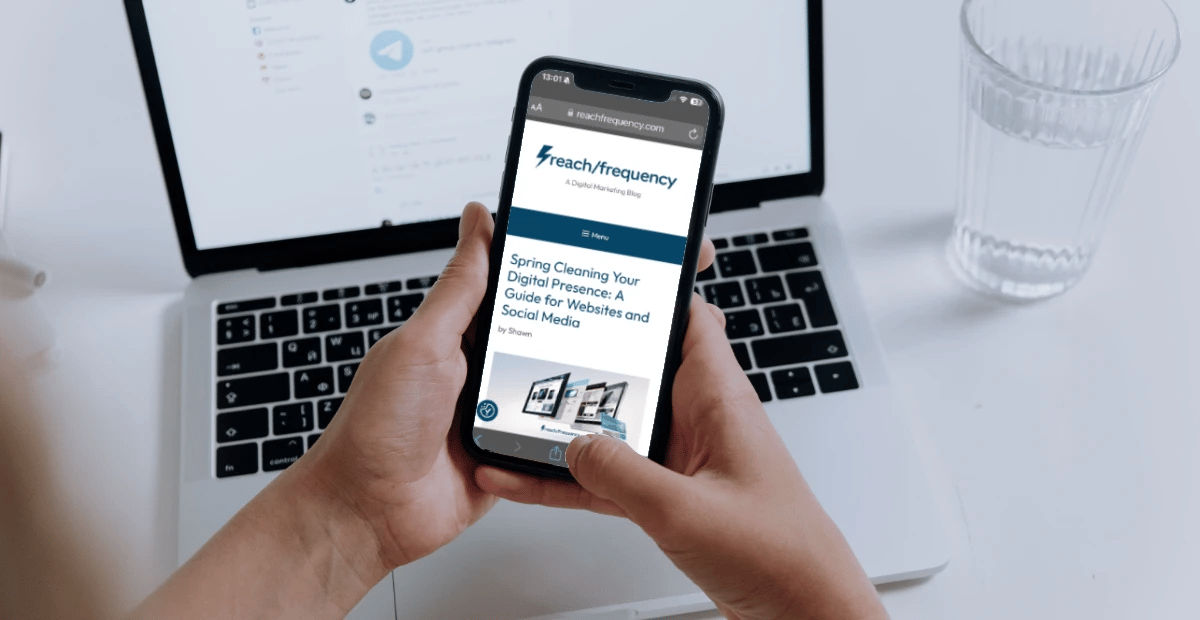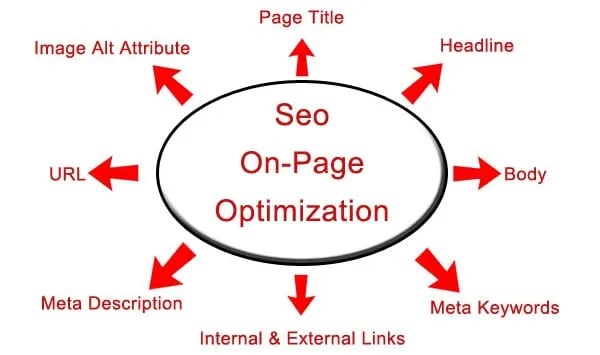
There’s no denying that mobile optimization plays a pivotal role in your website’s performance and overall business success. As more customers access websites through their smartphones, optimizing your site for mobile devices ensures a seamless experience, allowing you to capture leads and satisfy user demands efficiently. With agencies like Mister Nguyen Agency helping, you fine-tune your social media and design brand, embracing mobile optimization not only enhances user engagement but also boosts your visibility across digital platforms. Learn why prioritizing mobile design is important for staying competitive in today’s marketing landscape.
The Rise of Mobile Usage

The rise of mobile usage has transformed the marketing landscape, making it necessary for your business to embrace this shift. With more people accessing the internet via smartphones and tablets, mobile optimization has transitioned from a nice-to-have to a necessity. By providing a seamless mobile experience, not only can you enhance your brand’s visibility, but you also ensure that your customers remain engaged with your content, social media, and services.
Trends in Mobile Device Adoption
Mobile devices have become integral to our daily lives, with a significant percentage of the population relying on them for internet access. This trend is evident in the increasing sales of smartphones and tablets, as well as enhanced data connectivity. As you adapt your marketing strategies, understanding these trends can help you effectively reach your audience and generate more leads through your website and social media.
Impact on Consumer Behavior
At the core of this mobile revolution is a notable shift in consumer behavior. Consumers now expect immediate access to information and services on their preferred devices, leading them to favor businesses that prioritize mobile experiences. Whether browsing your website or engaging on social media, your customers value convenience, speed, and user-friendly interfaces. It’s necessary that your business meets these expectations to build lasting relationships.
Plus, this shift in behavior means that your customers are more likely to make quick purchasing decisions when they encounter a user-friendly mobile experience. If your website is optimized for mobile use, it invites customers to explore your offerings without frustration. This can significantly reduce bounce rates and increase conversion rates, allowing you to capture leads more effectively. As businesses adapt to this mobile-centric world, ensuring your design brand’s website is responsive is key to staying competitive and meeting the evolving needs of your audience.
User Experience and Mobile Optimization
There’s no denying that user experience plays a pivotal role in your website’s success, especially as more customers turn to mobile devices. When your site is mobile-optimized, you create an intuitive and seamless experience that keeps users engaged. A well-optimized website not only enhances satisfaction but also boosts your business’s credibility, helping you turn casual visitors into loyal customers and qualified leads.
Importance of Responsive Design

Along with user experience, responsive design is necessary for maintaining website functionality on various screen sizes. This approach ensures that your site’s layout adapts fluidly, so your content remains accessible regardless of whether it’s viewed on a smartphone, tablet, or desktop. By prioritizing responsive design, your business can better serve your customers, leading to higher engagement and satisfaction.
Mobile Page Loading Speed

Between user patience and expectations, your mobile page loading speed can significantly impact your business’s success. If your website takes too long to load, customers are likelier to abandon it in favor of faster competitors. Ensuring your mobile site loads quickly can make all the difference in retaining visitors and converting them into leads.
It’s important to note that slow-loading pages can not only annoy your customers but also negatively affect your search rankings. You should aim for your website to load in under three seconds on mobile devices to create a satisfactory experience. Utilize tools to analyze your current loading speed and optimize elements like images, scripts, and overall page structure. As a business, faster loading times can lead to increased customer retention, more effective social media campaigns, and ultimately, growth in your leads through Mister Nguyen Agency’s design expertise.
Search Engine Optimization (SEO) and Mobile

Clearly, mobile optimization significantly impacts your SEO strategy. As the majority of users access websites via mobile devices, search engines prioritize mobile-friendly sites. This means that if your website isn’t optimized for mobile, you may lose visibility in search results, impacting your business’s ability to attract customers and generate leads. Ensuring your site is responsive and fast loading can improve your rankings and help you stand out in today’s competitive digital landscape.
Mobile-First Indexing
By shifting to mobile-first indexing, search engines like Google now primarily use the mobile version of your website for indexing and ranking. This means that having a well-optimized mobile site is vital for your online presence. If your site does not offer a seamless mobile experience, you risk being placed lower in search results, affecting your ability to engage customers and grow your business.
Local SEO and Mobile Searches
Around 76% of people who search for something nearby visit a business within a day. This emphasizes the importance of local SEO, particularly for mobile searches. When you optimize your website for local searches, you can connect better with customers in your area, driving foot traffic to your business. Ensuring your business information is accurate and up-to-date on platforms like Google My Business can enhance your visibility during local searches.
In addition to accurate business information, it’s important to incorporate local keywords into your content, so that your website appears in relevant searches. Tools like Mister Nguyen Agency can assist you in achieving a strong local SEO presence. Leveraging social media can also boost your visibility, as many users search for businesses through these platforms. By optimizing your website for mobile and local search, you can turn more leads into loyal customers.
Mobile Marketing Strategies

Many businesses are adopting mobile marketing strategies to engage their customers more effectively. By leveraging different platforms such as social media, SMS, and mobile-optimized content, you can create a seamless experience that drives leads and fosters brand loyalty. With the growing number of users accessing websites via mobile devices, integrating these strategies into your marketing approach is vital for reaching your target audience.
SMS Marketing

The rise of mobile technology has made SMS marketing an effective tool for engaging customers directly. By sending timely and relevant text messages, you can communicate important updates, special offers, and promotions to your audience. This direct line to your customers allows for immediate interaction, increasing the chances of converting leads into sales for your business.
Mobile-Optimized Content

Across various platforms, offering mobile-optimized content helps ensure your website is accessible and visually appealing to users. By creating content specifically tailored for mobile devices, you enhance user experience, keeping your customers engaged and informed. With a wealth of information available at their fingertips, your audience is more likely to seek content that is easy to navigate and loads quickly.
Marketing with mobile-optimized content is vital in capturing the attention of your audience. By focusing on responsive design, ensuring that your website is easy to read and navigate on smaller screens, your business can provide a better user experience. Additionally, incorporating mobile-friendly visuals and concise messaging can help grab your customers’ attention quickly. Whether it’s through videos, infographics, or engaging blog posts, the right content strategy tailored for mobile users can lead to increased engagement and higher conversion rates, driving more leads for your business.
The Role of Social Media in Mobile Marketing

Your understanding of social media’s impact on mobile marketing can significantly enhance your business outreach. Platforms like Instagram, Facebook, and Twitter are increasingly optimized for mobile use, enabling you to connect with your customers on the devices they use most. By leveraging these platforms effectively, you can foster deeper relationships with your audience, track customer behaviors, and generate valuable leads for your business.
Engagement Through Mobile Platforms
About 70% of consumers use their smartphones to access social media. This mobile-centric behavior presents an invaluable opportunity for businesses like yours to engage with customers in real-time. By creating compelling content tailored for mobile platforms, you can keep your audience interested and encourage interactions, ultimately driving traffic to your website.
Advertising Strategies for Mobile Users

Across mobile platforms, effective advertising strategies can help you reach your target customers where they are most active. Utilizing visuals and concise messaging will resonate better with mobile users, increasing the likelihood of engagement and conversion.
Also, investing in targeted ads on social media platforms can yield significant returns for your business. By utilizing analytics tools from Mister Nguyen Agency, you can identify and segment your audience, ensuring that your ads reach the right customers. Approaches like retargeting can also enhance visibility, reminding potential leads about your brand or offerings. This strategy, combined with strong mobile optimization of your website, positions your business for greater success in attracting and retaining customers.
Analyzing Mobile Performance Metrics

Keep a close eye on your mobile performance metrics to gain valuable insights into how your website performs on mobile devices. Understanding these metrics is imperative for improving your business’s mobile optimization strategies and ensuring you reach your customers effectively.
Key Performance Indicators (KPIs)
Around your mobile strategy, focus on tracking key performance indicators (KPIs) that reflect user engagement and conversion rates. Metrics such as bounce rates, average session duration, and conversion rates will help you understand how effectively your mobile site attracts and retains customers. Utilizing this data allows you to refine your approach, ultimately driving more leads for your business.
Tools for Tracking Mobile Performance
Performance tracking tools can provide you with detailed analytics to optimize your mobile presence. Popular tools such as Google Analytics and SEMrush offer insights into user behavior and traffic patterns on your website, enabling you to make data-driven decisions. Consider leveraging these tools to assess the effectiveness of your mobile marketing campaigns and enhance user experience.
Mobile tracking tools allow you to gather insights into how customers interact with your website across different devices. By using these tools, you can identify areas for improvement, such as slow loading times or navigation issues, which can hinder customer engagement. Monitoring these performance metrics enables your business to adjust marketing strategies and allocate resources efficiently, fostering better relationships with your customers. Brands like Mister Nguyen Agency offer expert advice on this subject, helping you stay ahead in the competitive landscape of social media and design branding.
Final Words
To wrap up, mobile optimization is crucial in today’s marketing landscape as it directly impacts your website’s usability and your business’s ability to attract and retain customers. With more people accessing the internet via mobile devices, ensuring your site is mobile-friendly can significantly enhance user experience, foster engagement, and ultimately generate more leads. Prioritizing mobile optimization not only aligns with consumer behavior but also enhances your brand’s presence on social media.










